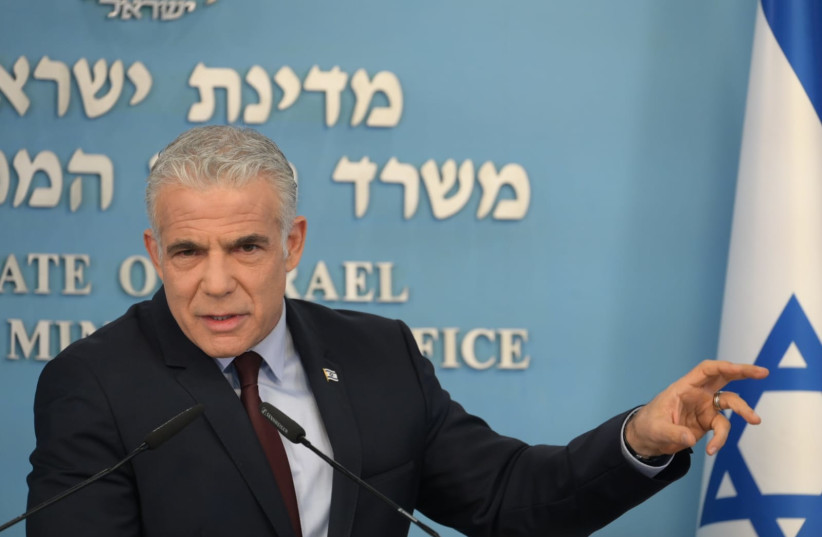Conventional wisdom tells us that the next election, like the four previous ones, will not be about Israel’s policies towards the Palestinians, ending the occupation or renewal of a peace process. The assumption is that the next government will be a right-wing government headed by Benjamin Netanyahu or a government led by Prime Minister Yair Lapid or Defense Minister Benny Gantz with a broad coalition from left to right. In either case, the solution to the conflict with the Palestinians will continue to be to kick the can down the road.
Despite initial declarations of support for some form of a two-state solution (due to US pressure) early in the 2009 Netanyahu government, the basic policy of Netanyahu’s governments from 2009 to 2021 has been to ignore the Palestinians, focus on the threat from Iran and build a coalition with the Gulf States. The policy of kicking the can down the road, initiated by the Netanyahu governments and carried on by the Bennett-Lapid government, has resulted in a short-term uneasy quiet in the West Bank, creeping annexation by settlers, an increase in the frequency of rocket attacks from Gaza, the rise of Hamas as a political force in the West Bank and the radicalization of Palestinians citizens of Israel.
Like Israeli governments, the Israeli public is more focused on the nuclear threat from Iran and more interested in the normalization of relations with the Gulf States and Morocco. This works well for a government that chooses to ignore the long-term repercussions of a stagnant Israeli-Palestinian diplomatic process.

The ousting of the PLO in favor of Hamas, an outbreak of violence in the West Bank between Jihadists and settlers, Palestinian citizens of Israel taking to the streets and another round in Gaza are easily predictable scenarios. The only major Palestinian initiative taken by the current Israeli government has been to unleash its military might on the Islamic Jihad in Gaza, killing innocent Palestinians along with terrorists.
Israel's left-wing parties won't talk about Paletine
While Meretz, Labor and Yesh Atid’s party platforms all include endorsements of a two-state solution, none of these parties have any intention of making that stand front and center in their election campaigns. Conventional wisdom says that the Israeli public does not believe it is currently possible to advance peace. What the most recent military engagement with Gaza proved to some Israelis, however, is that war is also not a solution.
The shortening intervals of quiet with Gaza and the increasing influence of Gaza unrest on the West Bank mean that Israel must take the initiative. Israel must use its power to reverse the cycle of violence, stop the killing and work toward a peaceful solution by engaging with Palestinians on improving their daily lives and creating a political process that leads to a two-state solution. For Israeli voters tired of seeing the can kicked down the road, this may be a message they can get behind, despite what conventional wisdom says.
The writer is the director of international development at the Arava Institute for Environmental Studies in Kibbutz Ketura. He is a researcher and lecturer at the institute, overseeing the Track II Environmental Forum, bringing Palestinians and Israelis together around common environmental concerns.
